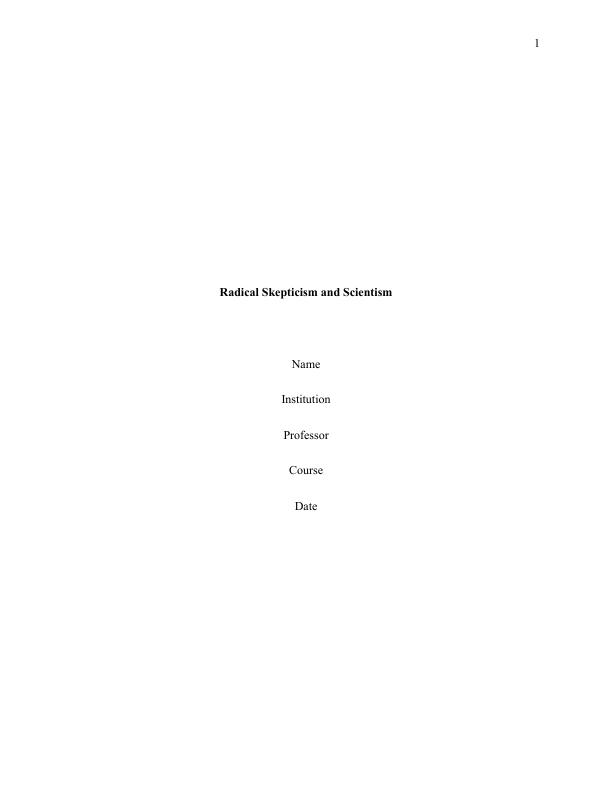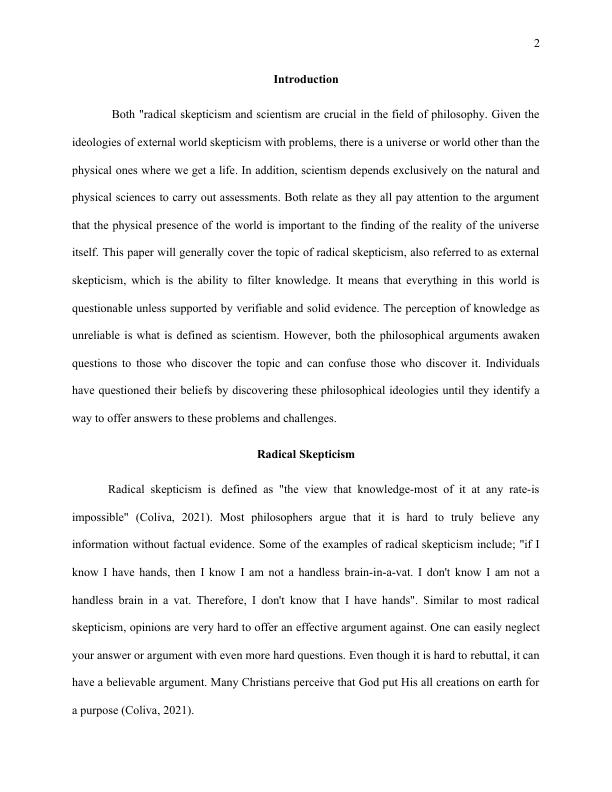Report on Radical Skepticism and Scientism
5 Pages1079 Words1008 Views
Added on 2022-02-15
About This Document
In the definition of radical skepticism, it is "the belief that knowledge-most of it at least-cannot be gained" (Coliva, 2021). It is difficult to believe any information without factual evidence, according to most philosophers. Radical skepticism includes statements such as; "if I have hands, then I know I am not an automated brain in a vat. Because I don't know that I am not a handled brain in a vat, I do not know I have hands.". Opinions are very difficult to refute effectively, like most radical skepticism. When faced with even more difficult questions, it is easy to overlook your answer or argument.
Report on Radical Skepticism and Scientism
Added on 2022-02-15
ShareRelated Documents
End of preview
Want to access all the pages? Upload your documents or become a member.
Philosophy of Science And Race
|7
|1751
|12


